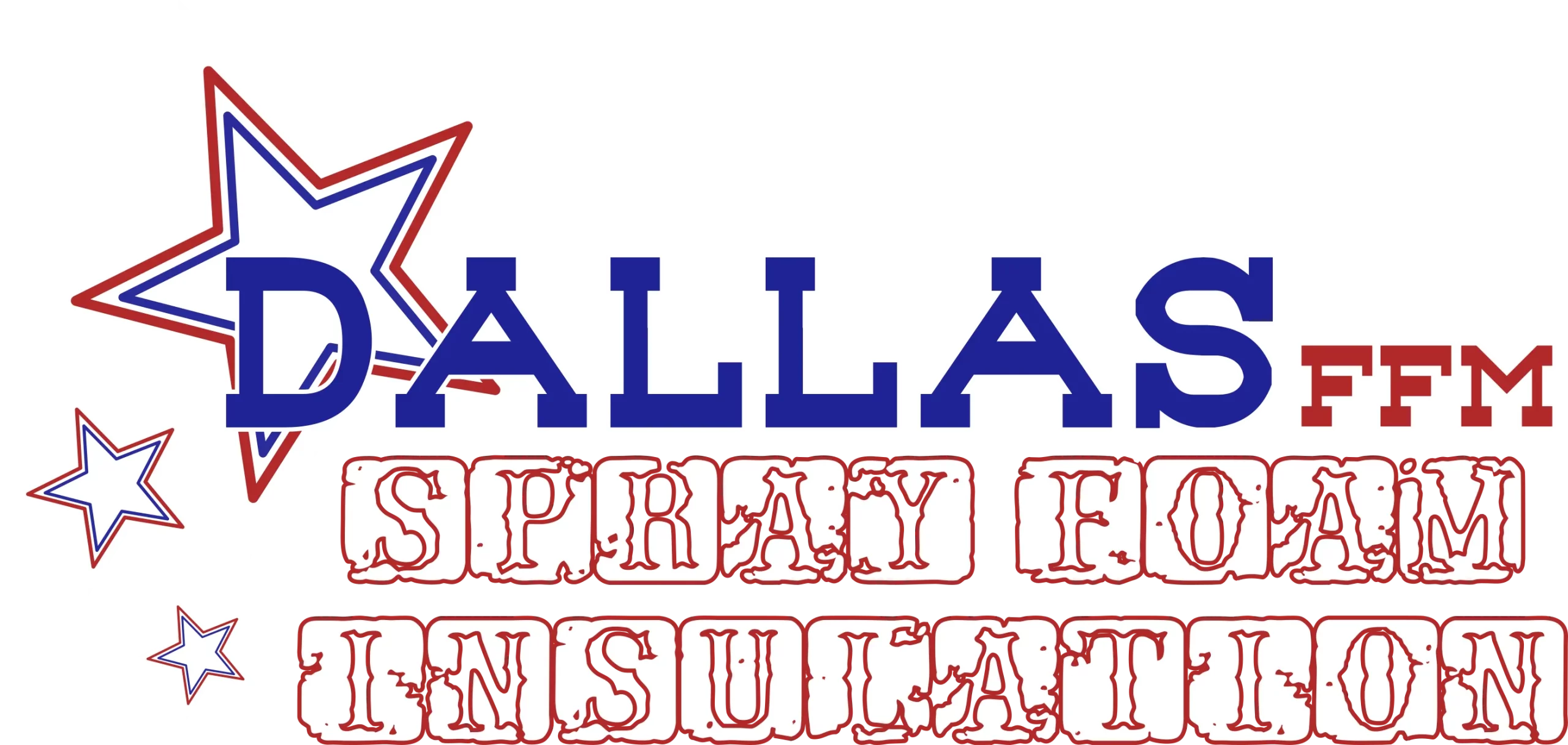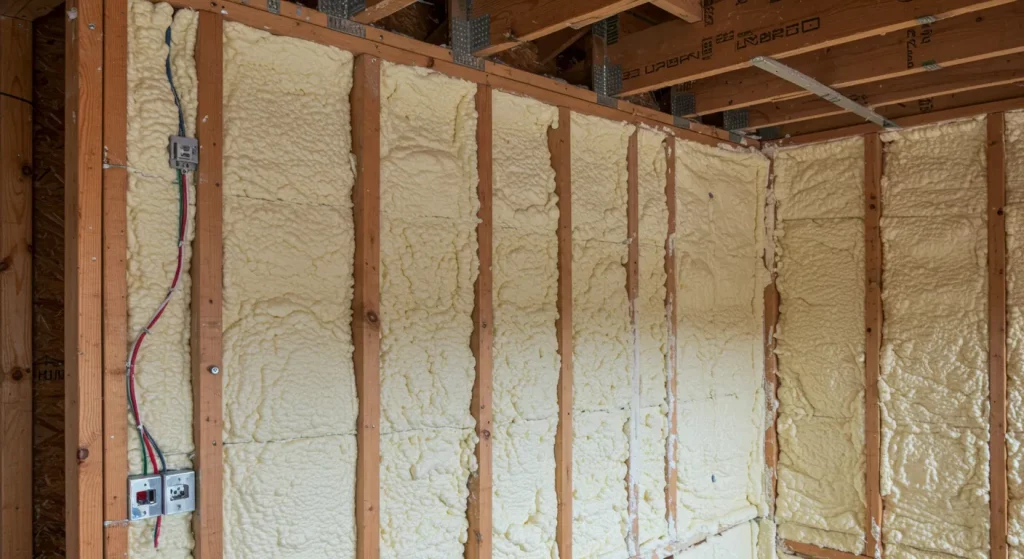Spray foam insulation is a highly effective method for enhancing energy efficiency and indoor comfort. Whether for residential or commercial applications, it is a long-term investment that can significantly lower energy bills. For those considering spray foam insulation for a 1500-square-foot area, understanding the costs involved is crucial. This guide breaks down the expenses, factors affecting pricing, and potential savings associated with spray foam insulation in Dallas, TX.
Cost of Spray Foam Insulation for 1500 Square Feet
Average Price Range
The cost of spray foam insulation for a 1500-square-foot space varies based on the type of spray foam used, labor charges, and additional factors. On average, the cost falls within the following range:
| Type of Spray Foam | Price per Square Foot | Estimated Cost for 1500 Sq. Ft. |
| Open-Cell Foam | $0.44 – $0.65 | $660 – $975 |
| Closed-Cell Foam | $1.00 – $1.50 | $1500 – $2250 |
These estimates cover the cost of materials and labor but may vary based on insulation thickness and specific project needs.
Factors Influencing the Cost
Several variables impact the overall expense of spray foam insulation:
1. Type of Spray Foam
- Open-cell spray foam: More affordable but offers lower R-value.
- Closed-cell spray foam: More expensive but provides higher insulation efficiency and moisture resistance.
2. Thickness of Application
- The thicker the insulation, the higher the cost. Standard applications range from 1 to 6 inches, depending on energy efficiency goals.
3. Labor Costs in Dallas, TX
- Installation expenses vary based on the complexity of the project, accessibility, and local labor rates.
4. Preparation and Additional Work
- Removal of old insulation, air sealing, or surface preparation can add to the total cost.
Benefits of Spray Foam Insulation
Energy Savings
Spray foam insulation significantly reduces energy loss, resulting in lower heating and cooling costs. Homeowners can expect to save up to 30% on energy bills annually.
Durability and Longevity
Unlike traditional insulation materials, spray foam does not settle or degrade over time, ensuring long-lasting performance.
Moisture and Mold Resistance
Closed-cell spray foam acts as a vapor barrier, preventing mold growth and protecting the structural integrity of buildings.
Noise Reduction
The dense composition of spray foam reduces noise transmission, making it an excellent choice for soundproofing.
Spray Foam vs. Other Insulation Options
Cost Comparison
| Insulation Type | Average Cost per Sq. Ft. | Efficiency |
| Fiberglass Batts | $0.40 – $1.00 | Moderate |
| Cellulose | $0.50 – $1.50 | High |
| Spray Foam | $0.44 – $1.50 | Very High |
Spray foam has a higher initial cost but provides superior insulation, leading to long-term savings.
Lifespan Comparison
- Fiberglass: 15-20 years
- Cellulose: 20-30 years
- Spray Foam: 50+ years
DIY vs. Professional Installation
DIY Installation
- Available in spray foam kits but requires technical expertise.
- Potential risks include improper application, health hazards, and reduced efficiency.
- Cost: $300 – $600 per kit (covers approximately 200 sq. ft.).
Professional Installation
- Ensures proper application, maximum efficiency, and compliance with building codes.
- Requires skilled labor but delivers long-term benefits.
- Higher upfront cost but offers better performance and longevity.
Choosing the Right Insulation for Your Home in Dallas, TX
Climate Considerations
Dallas experiences hot summers and mild winters. Closed-cell spray foam is often recommended due to its superior thermal resistance and moisture control properties.
Local Building Codes
Dallas has specific regulations regarding insulation materials and installation practices. Professional installers ensure compliance with these codes.
Return on Investment
Spray foam insulation enhances property value by improving energy efficiency, reducing maintenance costs, and increasing indoor comfort.
Conclusion
Spray foam insulation is a cost-effective and long-term solution for enhancing energy efficiency and indoor comfort. While the initial cost may seem high, the savings in energy bills, durability, and added home value make it a worthwhile investment. Homeowners in Dallas, TX, should consider factors such as climate, building codes, and application methods when deciding on insulation options. For those looking for professional installation, Dallas FFM Spray Foam Insulation offers expert services tailored to individual needs.
Contact Us
Interested in upgrading your home with spray foam insulation? Contact a professional installer to receive a customized estimate and improve your home’s energy efficiency today.
FAQs
How long does it take to install spray foam insulation in a 1500-square-foot area?
The installation process typically takes 1-2 days, depending on the complexity of the project and the type of spray foam used.
Is spray foam insulation safe for residential homes?
Yes, once cured, spray foam is safe. However, proper ventilation is required during installation to avoid exposure to chemicals.
Can spray foam insulation be applied to existing walls?
Yes, spray foam can be used to retrofit existing walls, but it may require cutting small access points for application.
What is the R-value of spray foam insulation?
- Open-cell spray foam: R-3.5 to R-4.0 per inch
- Closed-cell spray foam: R-6.0 to R-7.0 per inch
How does spray foam compare to fiberglass in terms of energy efficiency?
Spray foam offers superior energy efficiency due to its airtight seal, reducing heat loss more effectively than fiberglass.
Does spray foam insulation qualify for any rebates or tax credits in Dallas, TX?
Homeowners may qualify for federal energy efficiency tax credits and local utility rebates. Check with local authorities for specific incentives.
Can spray foam insulation help with soundproofing?
Yes, spray foam helps reduce noise transmission, making it an excellent choice for soundproofing walls and ceilings.
What maintenance does spray foam insulation require?
Spray foam insulation requires little to no maintenance once installed correctly. It remains effective for decades without settling or deteriorating.
What happens if spray foam insulation gets wet?
Closed-cell spray foam is water-resistant and prevents moisture buildup. Open-cell spray foam absorbs water but dries out without significant damage.
How does spray foam impact indoor air quality?
Spray foam improves indoor air quality by reducing allergens and pollutants entering the home through air leaks.



